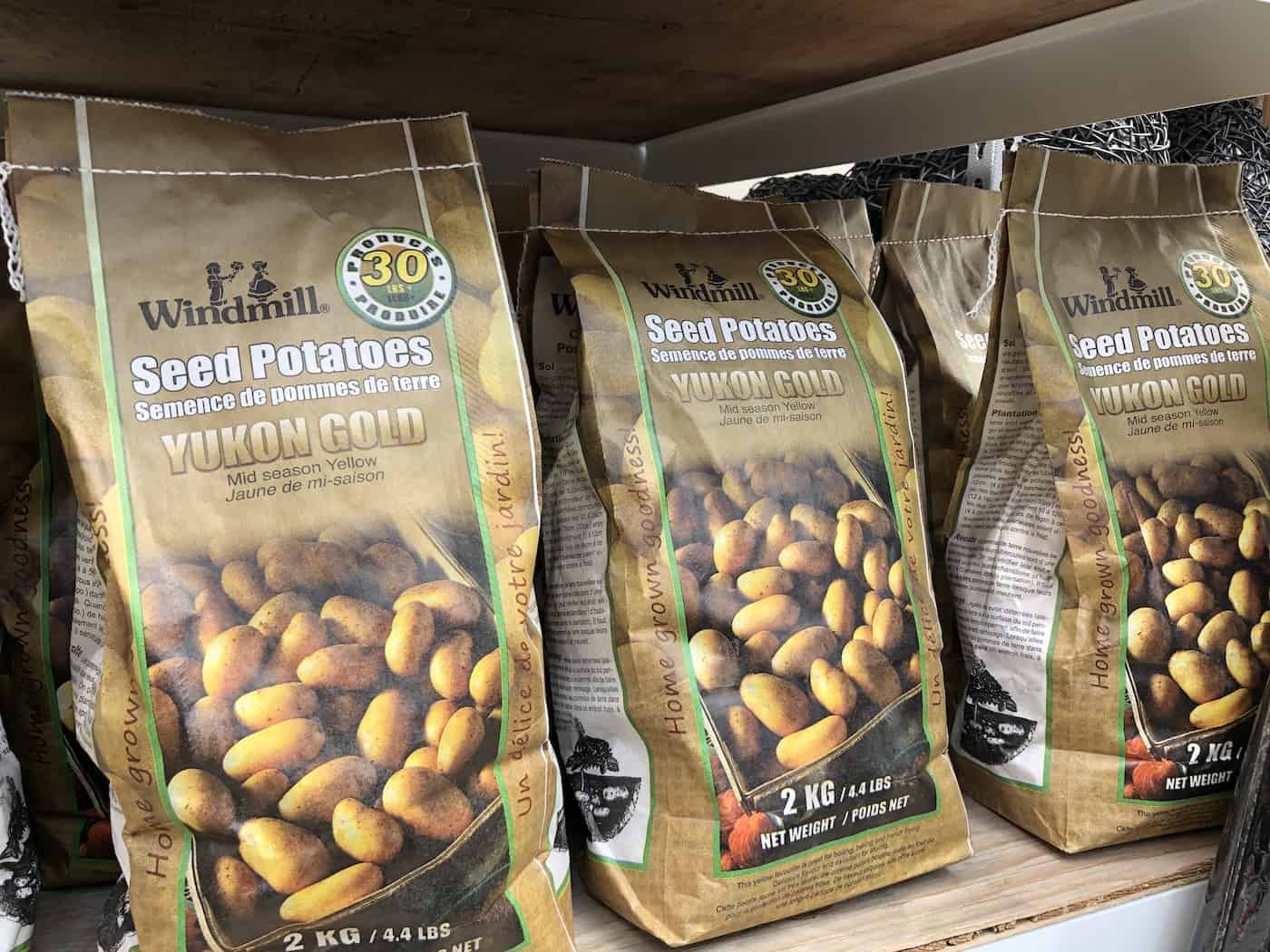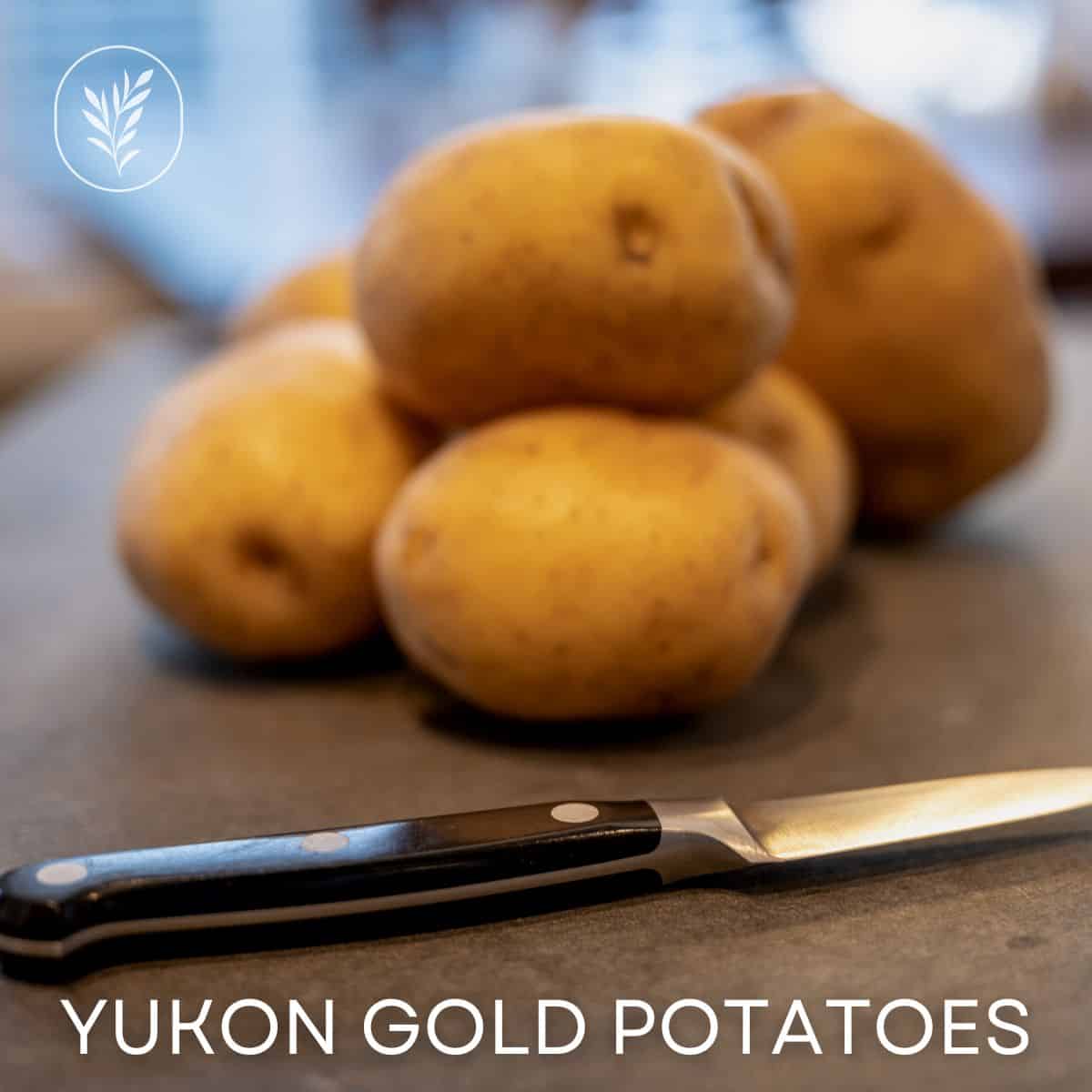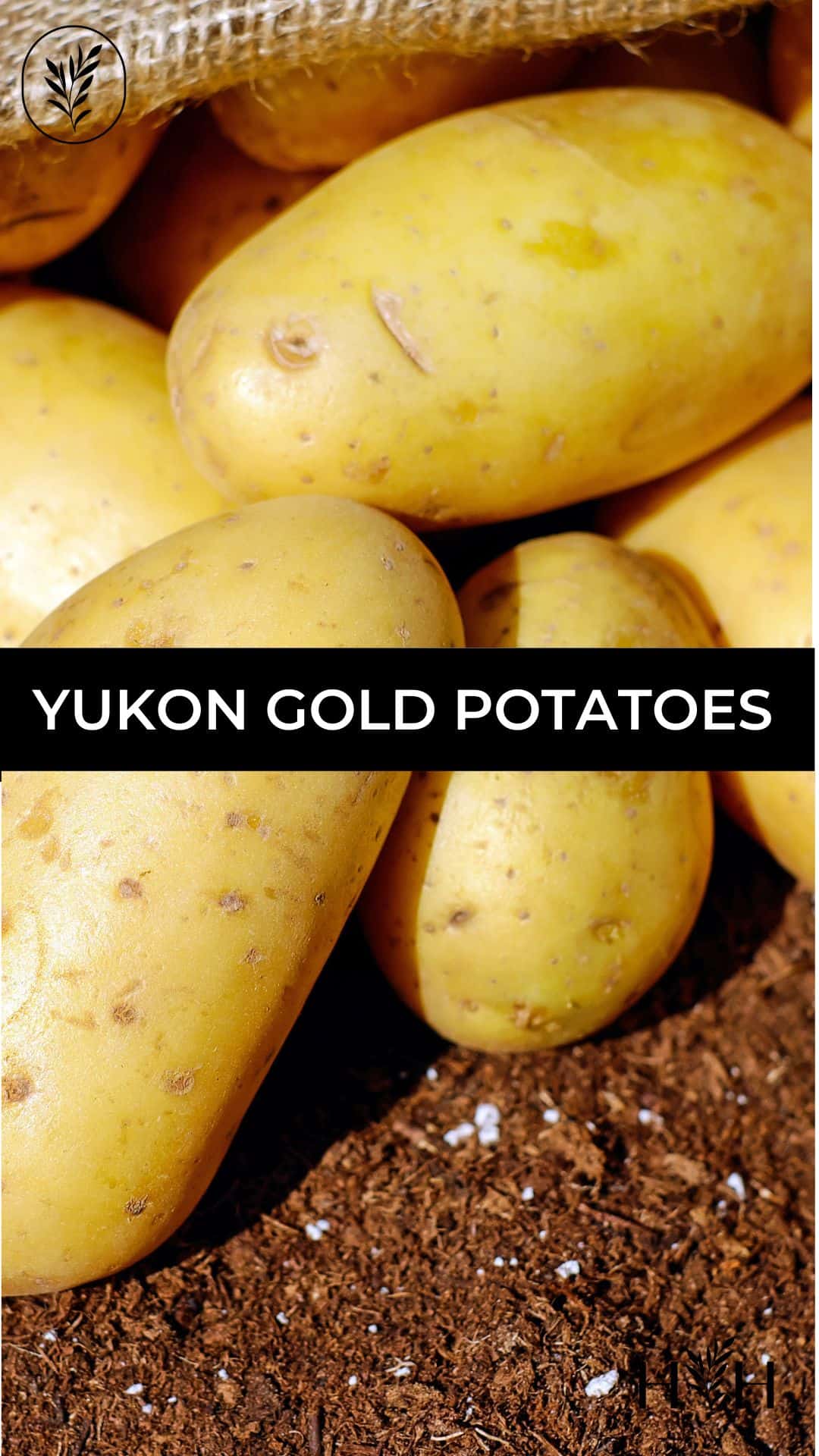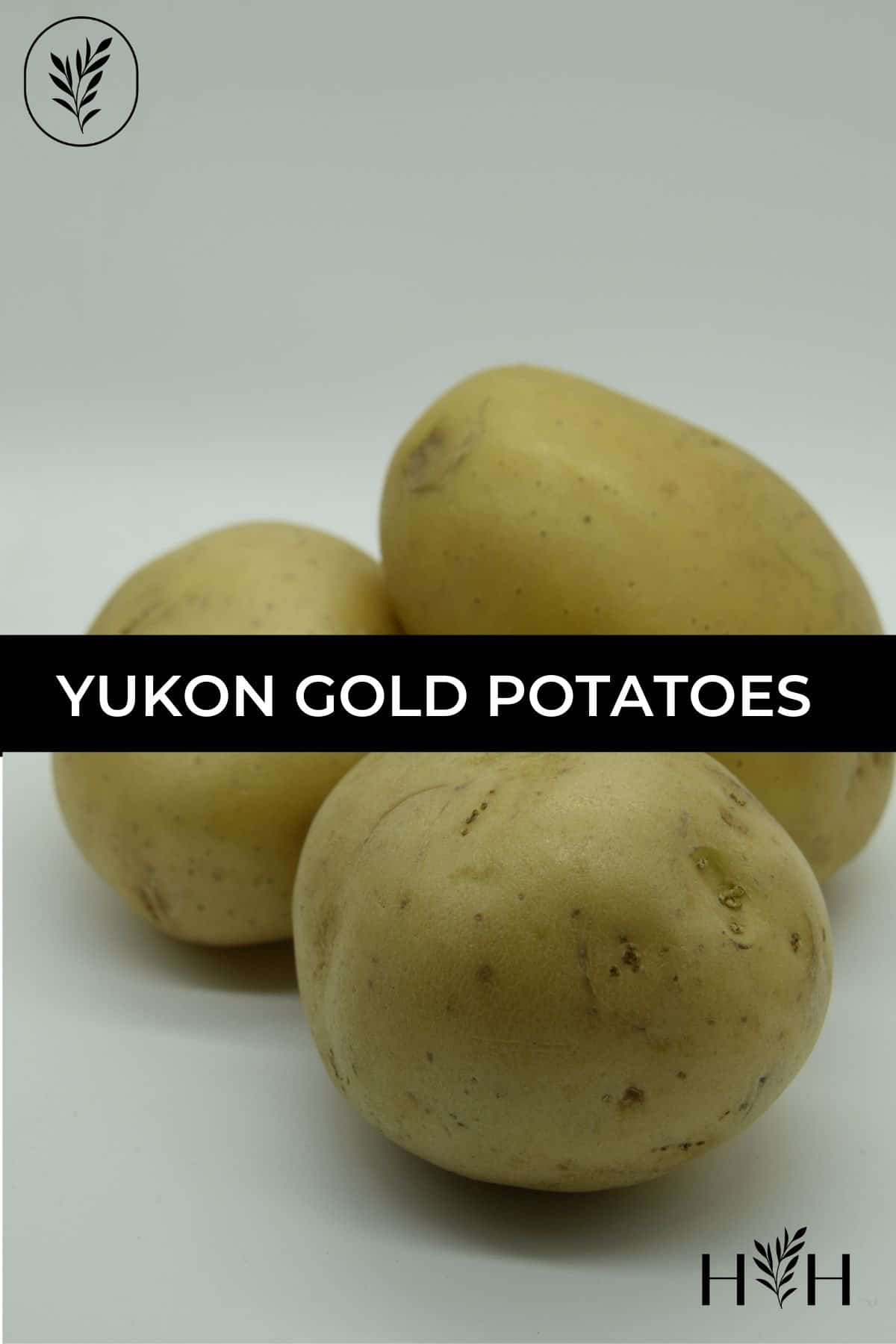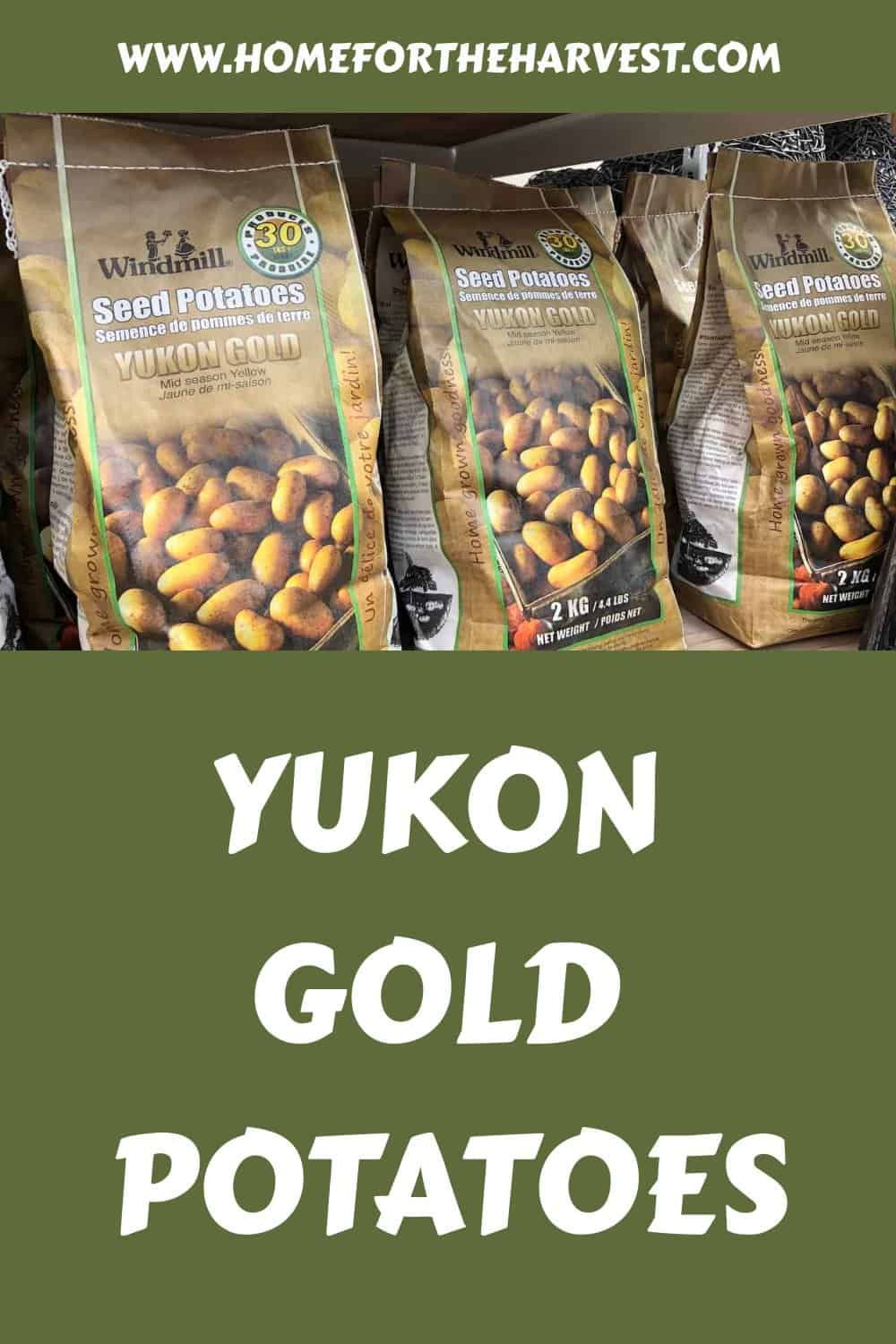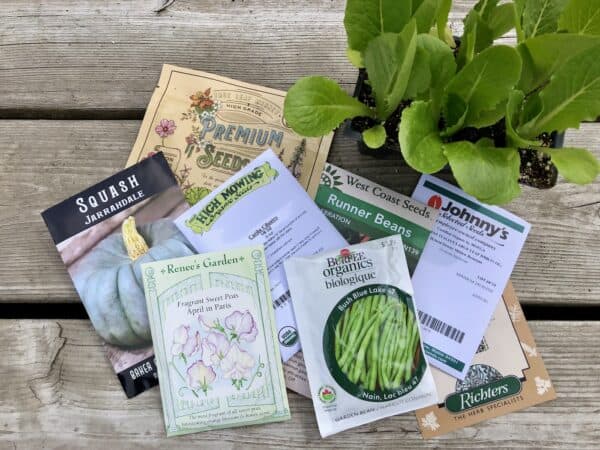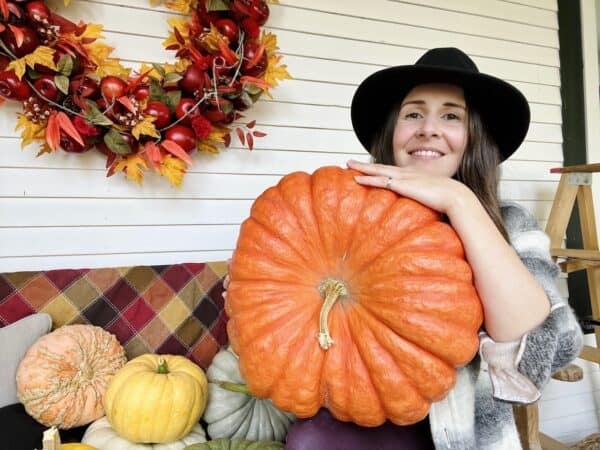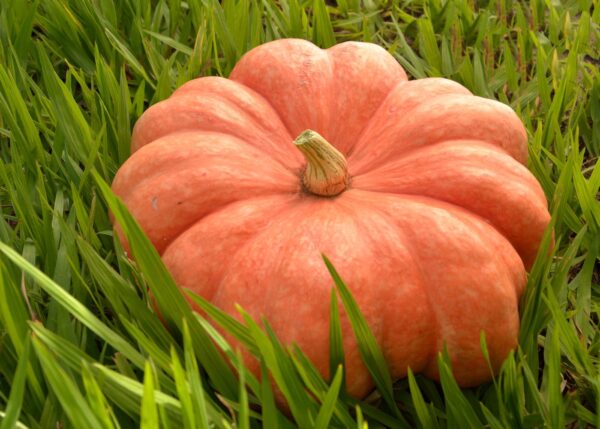The Yukon Gold potato is a gourmet variety with light yellow flesh and smooth tan skin. They have a fluffy dry texture and a buttery flavor when cooked. Yukon Gold potatoes are most commonly baked or boiled but can also be used for making French fries, roasted potatoes, or mashed potatoes. These determinate potatoes are a midseason variety and take about 100 days to mature after planting.
Yukon Gold potato basics
Yukon Gold is a potato cultivar developed in the 1960s in Canada at the University of Guelph. They have tan skin with light brown flecks and bright yellow flesh. These potatoes are known for their versatility in the kitchen and can be used for frying, baking, mashing, and roasting.
Buying Yukon Gold seed potatoes
You’ll need to purchase seed potatoes. Seed potatoes are small potato tubers that have been specifically grown for planting. They can be purchased from most garden centers or online from popular seed companies.
Potatoes are almost always grown from seed potatoes (not seeds). Seed potatoes are normal potatoes that have been grown and selected to be healthy and disease-free and are not treated with sprout inhibitors like most supermarket potatoes.
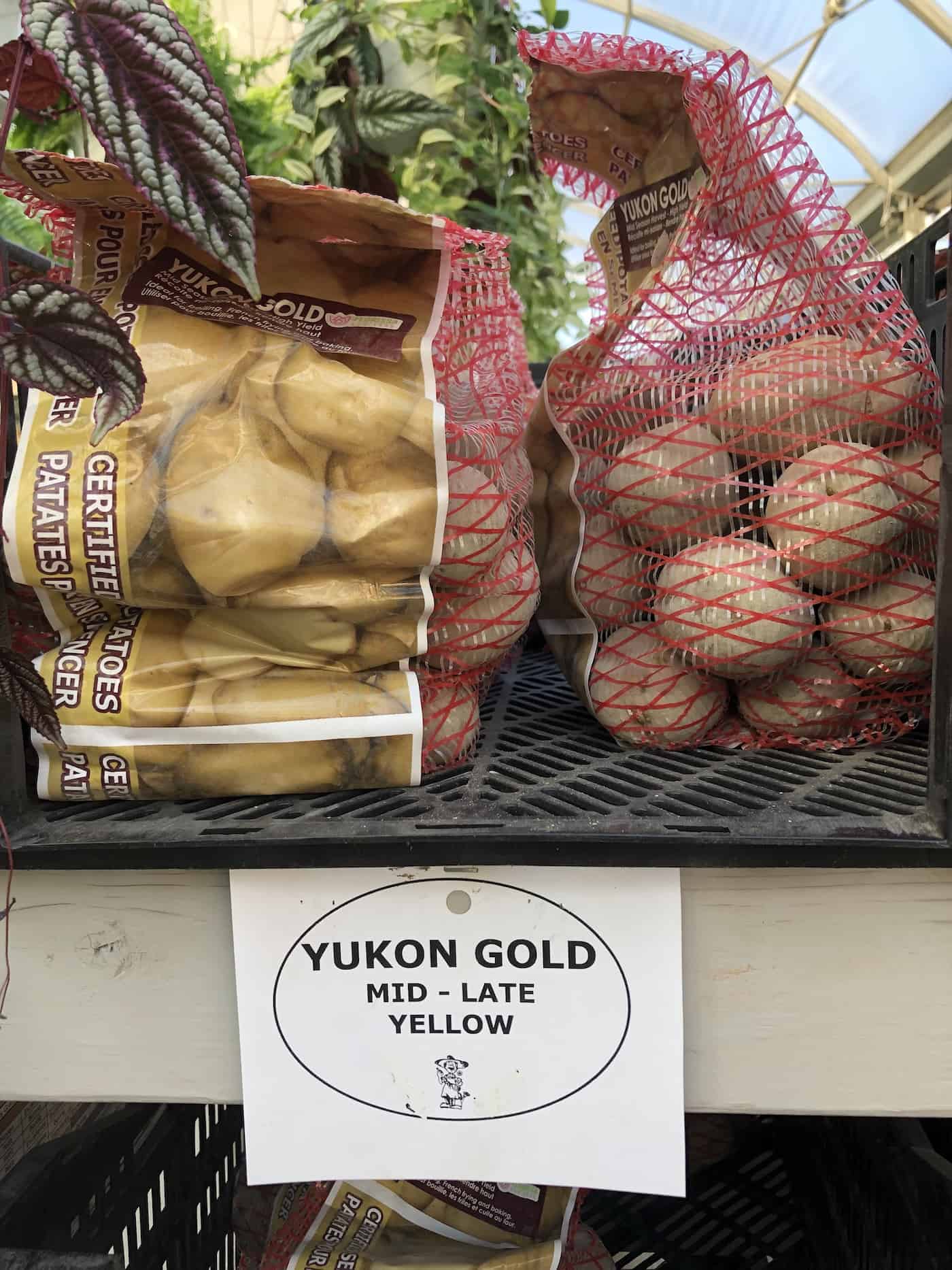
When to plant potatoes
Potatoes can be planted 2-4 weeks before your last frost in the spring. Just be sure to cover the baby plants if a late frost is in the forecast.
Here’s a guide of estimated planting month by USDA plant hardiness zone:
- Zone 10+: January
- Zone 9: early February
- Zone 8: late February
- Zone 7: early March
- Zone 6: late March
- Zone 5: early April
- Zone 4: late April
- Zone 3: early May
- Zone 2-: late May
Preparing seed potatoes for planting
Once you have your seed potatoes, it’s time to prepare them for planting. The process is relatively simple:
- Cut your seed potatoes into pieces that have 2-3 eyes (sprouts) on each piece.
- Allow the cut pieces to dry out for a few days until the flesh is no longer wet.
While small seed potatoes (1-2 ounces) are generally planted whole, larger seed potatoes like Yukon Gold are commonly cut up into several pieces. Each piece needs at least one “eye” to sprout from, but 2-3 eyes is best.
Seed potatoes are generally left to “chit” in the spring. This is just allowing them to sprout in warm indoor temperatures. Letting them sprout indoors before you plant them outside generally leads to earlier harvests. Chit seed potatoes by placing them in an empty cardboard egg carton in a cool room that gets some natural light.
When to plant Yukon Gold potatoes
Potatoes may be sown in early to mid-spring since they tolerate cool soil and light frost. Plant seed potatoes when the soil has warmed up to at least 45 degrees F (7 degrees C). This is often in March in southern areas, or in April or May in cooler climates with freezing winters.
Where to plant Yukon Gold potatoes
Potato plants like Yukon Gold grow best when grown in full sun locations that receive a minimum of 6-8 of direct sunlight each day. They also prefer loose, well-drained soils with a slightly acidic pH between 5.0 and 6.5. Lastly, avoid planting potatoes where other nightshades like tomatoes, peppers, or eggplant were grown the previous year to minimize disease problems.
When preparing your planting area, work on some organic matter like compost or manure to help improve drainage and add nutrients to the soil. If your soil is very heavy, you may want to consider planting Yukon Gold potatoes in raised beds or potato grow bags.
Planting seed potatoes
Once your seed potatoes have dried out and the soil is warm, they are ready to be planted. Plant them in a sunny spot with well-draining soil.
- Dig trenches or individual holes that are about 6 inches deep and 6 inches wide. Alternatively, use a potato grow bag.
- Place your cut pieces of seed potato into the planting hole or trench with the eyes facing up.
- Space the seed potato pieces about 12″-18″ apart for new potatoes and more like 24″-30″ apart for larger midseason potatoes.
- Cover the seed potatoes with about 2-3 inches of soil.
- Water thoroughly after planting.
Growing Yukon Gold potatoes
Once your seed potatoes are planted, you’ll need to wait for them to sprout. This typically takes about 2-4 weeks. If there is a danger of frost in the weather forecast, cover the potato plant shoots overnight with a row cover.
Once they have started growing and have reached 5″-6″ tall, you can add more soil to the trench/hole. Keep adding soil around the plant to “hill them up” and keep the tubers buried. Potato plants are usually “hilled” about every two weeks. Always try to leave about 2″ of potato plant foliage above the soil line whenever hilling up the plants.
During the growing season, keep weeds at bay. Weeds compete for water, space, and nutrients with plants, so control them by cultivating or utilizing a mulch to prevent their seeds from germinating.
Continue watering regularly as needed throughout the growing season to ensure adequate water for potato development. They like 1-2 inches of water each week and more during hot, dry weather. When tubers are developing (around bloom time), uneven growth due to periods of drought reduces production and can lead to damaged potatoes.
To determine whether you need to add water, use a rain gauge. Water with a drip irrigation or soaker hose if possible. If you water with overhead sprinklers, make sure you water early in the day so the leaves have time to dry before nightfall to reduce disease risks.
When the plants are about 12 inches tall and flowers first begin to appear, further side applications of fertilizer may be required in nutrient-deficient soils. Here’s a detailed guide all about how to grow potatoes.
Companion plants for potatoes
Potato plants like Yukon Gold have quite a few good companion planting options. Yukon Gold is a particularly good variety for companion planting as it is determinate and rather compact, leaving room for interplanting.
You can plant the soil between the potatoes and/or the sides of the potato hills with smaller plants to help shade the soil and keep it moist. Good companion plants for potatoes include basil, nasturtium, green onion, and lettuce.
Read more about companion plants for potatoes.
Garden pests affecting Yukon Gold potatoes
Common potato plant pests include aphids, Colorado potato beetles, leafhoppers, cutworms, potato cyst eelworms, root-knot nematodes, slugs, and wireworms. Rows covered with insect netting work well to keep potato beetles, aphids, and leafhoppers off the plants.
Keep an eye out for signs of damage to the plant, including holes in the leaves, damaged stems, or holes in new potatoes. Also, check for clusters of eggs on the undersides of the leaves. Treat the plant with an organic insecticide if larvae/worms are suspected. Slugs can be handpicked off at night or captured in beer traps. Aphids can be sprayed off with water or insecticidal soap.
Plant diseases affecting Yukon Gold potatoes
Common potato plant diseases include potato scabs, gray mold (botrytis), potato blackleg, potato blight, verticillium wilt, and powdery scab. Most common bacterial and fungal diseases can be controlled by organic bacterial and/or fungal sprays. Plants will tend to be less susceptible to disease when grown in full sun with good air circulation and when watered and fertilized consistently. Practice crop rotation and avoid growing potatoes/tomatoes/nightshades in the same spot year after year.
Harvesting Yukon Gold potatoes
Yukon Gold potatoes can be ready for harvest as early as 90 days after planting, but they are typically ready to harvest after 100 days. That said, you can usually harvest small “new” potatoes at about 70 days (10 weeks) after planting or whenever the plants start to flower.
To harvest new potatoes, use a trowel to gently dig into the top layer of soil and unearth the potatoes. Take only a handful from each plant if you plan on harvesting full-size Yukon Gold potatoes later in the season. Try not to disturb the rest of the plant. Replace the soil after harvesting and water the plant.
To harvest mature Yukon Gold potatoes, dig down into the soil with a garden fork and remove them from the ground. Lift and turn the soil carefully to avoid damaging the tubers as you pick them out of the earth. Brush off excess soil.
If storing the potatoes, leave them out in the sun for 1-4 hours and then brush off the dirt prior to bringing them indoors for storage. After harvesting, store the potatoes in a dark, dry location for a week at 65-70 degrees F to dry out a bit. After that, store potatoes in a cool dark location (like a root cellar) at about 35-40 degrees F. Potatoes may also store better if you wait to harvest for 2-3 weeks after the plants die in the fall.
Recipes for cooking Yukon Gold potatoes
Now that you have harvested your Yukon Gold potatoes, it’s time to put them to use! These yellow gold potatoes are naturally buttery and work great for french fries, potato salads, potato soup, roasted potatoes, or mashed potato recipes. Here are some delicious Yukon gold potato recipes to try:
Potato salad
Combine 1 lb of chopped cooked Yukon Gold potatoes with 1/4 cup mayonnaise, a pinch of salt and pepper, and a handful of chopped dill in a large bowl. Add salt to taste. Serve the creamy potato salad chilled.
Potato soup
In a large pot, combine 1 lb of peeled and cubed Yukon Gold potatoes with 4 cups of chicken or vegetable broth. Bring to a boil and simmer for 15 minutes until the potatoes are soft. Puree with an immersion blender or in a food processor, and then stir in 1/4 cup heavy cream. Season to taste with salt and pepper, and garnish with chopped chives. Enjoy warm!
Roasted potatoes
Preheat your oven to 400 degrees F. Combine 1 lb of the cut potato pieces with a few tablespoons of olive oil and some salt and pepper. The pre-roasted potatoes should be placed in the oven on a baking sheet with aluminum foil or a silicone mat for 45-50 minutes, occasionally moving until golden brown. When the outsides are slightly crispy, serve the roasted potatoes with sour cream or other sauces.
Mashed potatoes
Cook 1 lb of peeled and cubed Yukon Gold potatoes in boiling water until tender. Drain and mash with 1/4 cup milk, two tablespoons butter, salt, and pepper to taste. Serve the mashed potatoes warm. Add garlic, sour cream, crème fraiche, or cheese to the mashed potatoes for a boost of extra flavor.
FAQs about the Yukon Gold potato
What is special about Yukon Gold potatoes?
The Yukon Gold Potato is a gourmet variety that is known for being delicious and versatile. They taste great and can be used in most culinary applications. Their texture is naturally “buttery” and smooth, with a nice golden color.
Are Yukon Gold Potatoes the same as Russet potatoes?
Nope! Russet potatoes are larger, have thicker brown skin, and white flesh, whereas Yukon Gold potatoes have yellow flesh and thinner tan-colored skins. Russets are also higher in starch content than Yukon Golds.
What is a substitute for Yukon Gold potatoes?
It depends on the recipe, really! But the German Butterball or Kennebec can make great substitutes. You can use any Russet potato for mashed potatoes.


